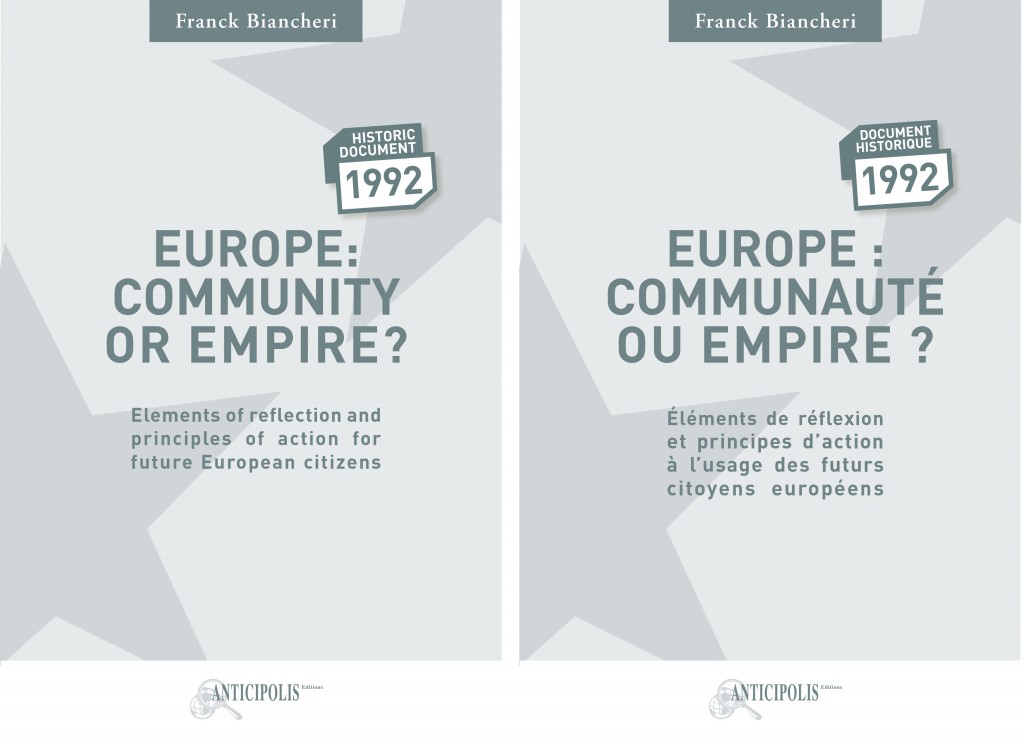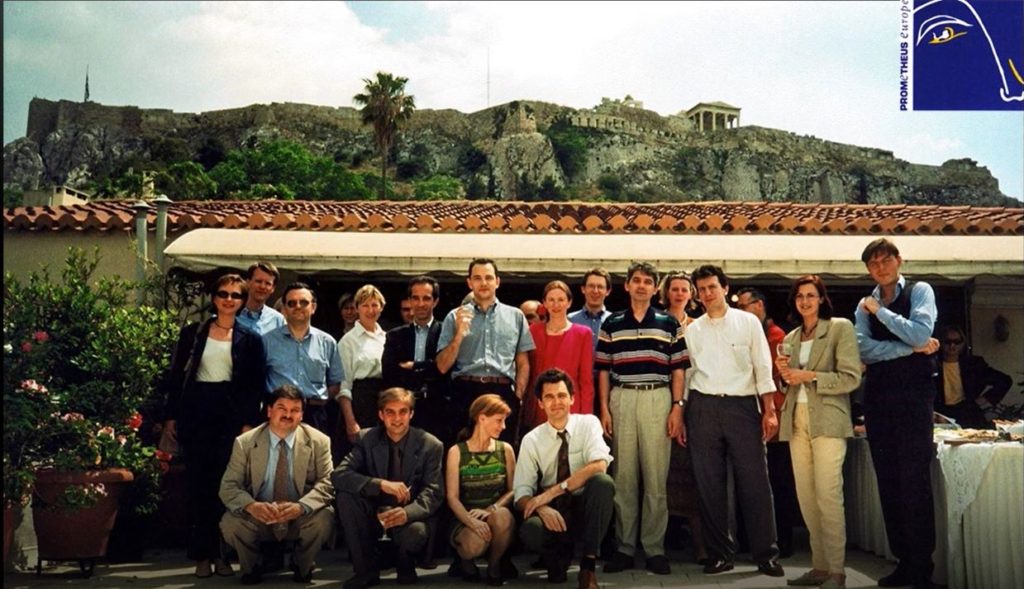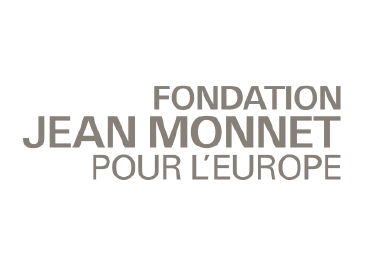We estimate to over 80% the probability that the week of March 20-26, 2006 will be the beginning of the most significant political crisis the world has known since the Fall of the Iron Curtain in 1989, accompanied by an economic and financial crisis of a scope comparable with that of 1929.
This last week of March 2006 will be the turning-point of a number of critical developments, resulting in an acceleration of all the factors leading to a major crisis, disregard any American or Israeli military intervention against Iran. In case such an intervention is conducted, the probability of a major crisis to start rises up to 100%.
The announcement of this crisis results from the analysis of decisions taken by the two key-actors of the main on-going international crisis, that is the United States and Iran:
- on the one hand, there is the Iranian decision to open the first oil bourse priced in Euros on March 20, 2006 in Teheran, available to all oil producers of the region ;
- on the other hand, there is the decision of the American Federal Reserve to stop publishing M3 figures (the most reliable indicator on the amount of dollars circulating in the world) from March 23, 2006 onward[1][2]).
These two decisions are altogether the indicators, the causes and the consequences of the historical transition in progress between the order created after World War II and the new international equilibrium in gestation since the collapse of the USSR. Their magnitude as much as their simultaneity will catalyse all the tensions, weaknesses and imbalances accumulated since more than a decade throughout the international system.
We identified 7 converging crises (out of which the first two are detailed in the Telescope section of the present issue) which the American and Iranian decisions coming into effect during the last week of March will catalyse into a total crisis, affecting the whole planet in the political, economic, financial and probably military fields : loss of confidence in the Dollar, explosion of the US financial imbalances, oil crisis, end of the US leadership, distrust towards the Arab-Muslim world, inefficiency of global governance and uncertainties as to the European governance.
The decision to cease M3 publication also illustrates the powerlessness of the US and international monetary and financial authorities in a situation where they will in the end prefer to remove the indicator rather than try to act on the reality.
The ‘monetarisation’ of the US debt is a very technical term describing a catastrophically simple reality: the United States is undertaking not to refund their debt, or more exactly to refund it in “phony money”; and they anticipate that the process will accelerate at the end of March, in coincidence with the launching of the Iranian Oil Bourse, which can only precipitate the sales of US Treasury Bonds by their non-American holders. The choice made by the US administration will result in a complete loss of confidence among their main allies who often are also the greatest holders of US Dollars (United-Kingdom, The Netherlands, Japan, …[3]). Diplomatic, strategic and military consequences will be deep and durable.
Moreover, in order to try to avoid the explosion of the “real-estate bubble” on which the US household consumption relies, and at a time when the US saving rate has become negative for the first time since 1932 and 1933 (in the middle of the “Great Depression”), the Bush administration, in association with the new chief of the US Federal Reserve and a follower of this monetary approach, will flood the US market with liquidities.
The non-accidental conjunction of the Iranian and American decisions, is a significant step in the release of a systemic crisis marking the end of the international order set up after World War II, which will be characterised between the end of March and the end of the year 2006 by a Dollar-plunge (possibly down to 1 Euro = 1,70 US Dollars in 2007) putting an immense upward pressure on the Euro, a significant rise of the oil price (over 100$ per barrel), an aggravation of the American and British military situation in the Middle East, a US budgetary, financial and economic crisis comparable in scope with the 1929 crisis, very severe economic and financial consequences for Asia in particular (and namely China) but also for the United Kingdom[4], a sudden stop to the economic process of globalisation, a collapse of the transatlantic axis leading to a general increase of all the domestic and external political dangers all over the world.
For companies and governments, European ones in particular, the required strategic and operational decisions must be made as soon as possible on order to soften the « monetary, financial and economic tsunami » which will break on the planet at the end of next month. To use a simple image – by the way, one used in the political anticipation scenario « USA 2010 » 4 -, the impact of the events of the last week of March 2006 on the “Western World” we have known since 1945 will be comparable to the impact of the Fall of the Iron Curtain in 1989 on the “Soviet Block”.
For Euroland in particular, this crisis will be a key-test of its sustainability. The Euro’s sudden and significant rise and the general destabilisation of global markets and economy will expose Euroland to contradictory pressures related to contradictory challenges:
. on the one hand, the immense economic challenge for maintaining the competitiveness of Euro zone companies, accompanied by a social challenge of similar scope for protecting European employment, creating a centrifugal force – some countries of the Euro zone will be tempted to find salvation by their own means;
. on the other hand, the imperious need to find stability and protection in an unpredictable global environment, creating a centripetal force.
According to LEAP/E2020, the quality of Euroland governance during this crisis will determine the course of events. This aspect is the topic of Focus 1 in the present issue.
At this stage, only a direct and immediate action on the part of the US administration aimed at preventing a military confrontation with Iran on the one hand, and at giving up idea of monetarising the US foreign debt on the other hand, could change the course of events. It is obvious today that not only such actions will not be initiated by the current leaders in Washington, but on the contrary that they have already chosen “to force the destiny” by shirking their economic and financial problems at the expense of the rest of the world. European governments in particular should draw very quickly all conclusions from this fact.
Franck Biancheri in GEAB Nr 2 – February 16th, 2012
[1] The information on the creation by the Iranian government of an oil bourse priced in Euros
(http://www.mehrnews.com/en/NewsDetail.aspx?NewsID=260851) first appeared in Summer 2004 in the specialised press. The Federal Reserve announced on November 10, 2005 that it would cease publishing the information concerning M3 from March
[2] , 2006 onward : http://www.federalreserve.gov/releases/h6/discm3.htm
[3] Source: Bank of International Settlements, Table 9A, Consolidated Claims of Reporting Banks on Individual Countries
[4] The United Kingdom indeed owns close to 3,000 billion $ of credits, that is almost three times what countries such as France or Japan own.
(source Bank of International Settlements, Table 9A, Consolidated Claims of Reporting Banks on Individual Countries ) 4 Cf. GlobalEurope Anticipation Bulletin N°1 (January 2006)





